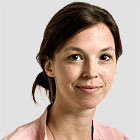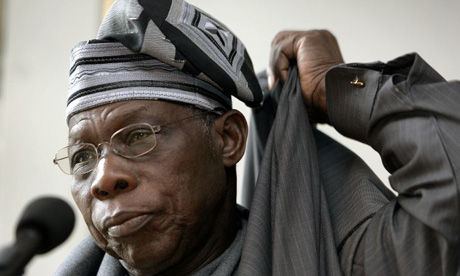The trafficking of Nigerian women from Libya to Italy by boat is reaching “crisis” levels, with traffickers using migrant reception centres as holding pens for women who are then collected and forced into prostitution across Europe, the UN’s International Organisation for Migration (IOM) warns.
About 3,600 Nigerian women arrived by boat into Italy in the first six months of this year, almost double the number who were registered in the same time period last year, according to the IOM.
More than 80% of these women will be trafficked into prostitution in Italy and across Europe, it says.
“What we have seen this year is a crisis, it is absolutely unprecedented and is the most significant increase in the number of Nigerian women arriving in Italy for 10 years,” said Simona Moscarelli, anti-trafficking expert at the IOM.
“Our indicators are the majority of these women are being deliberately brought in for sexual exploitation purposes. There has been a big enhancement of criminal gangs and trafficking networks engaging in the sexual exploitation of younger and younger Nigerian girls.”
Although a thriving sex trafficking industry has been operating between Nigeria and Italy for over three decades, there has been a marked increase in the numbers of unaccompanied Nigerian women arriving in Italy on migrant boats from Libya. In 2014, about 1,500 Nigerian women arrived by sea. In 2015 this figure had increased to 5,633.
“Already we have seen nearly 4,000 women come in the first six months of this year,” said Moscarelli. “We are expecting the numbers to have increased again by the end of this year.”
She warned that the current policy of placing Nigerian women in reception centres along with thousands of other migrants was playing to the traffickers’ advantage, with women regularly going missing.
“There is little understanding of the dynamics and nature of this form of trafficking,” said Moscarelli.
“The reception centres are not good places for trafficked women. Just last week six girls went missing from a reception centre in Sicily, they were just picked up in a car and driven away.”
Nigerian women who are entering Italy among migrants on boats from Libya should be immediately identified and treated as trafficking victims. Instead of being processed in reception centres, they should be placed in specialist shelters where they can be given the advice and support needed to break the chain of sexual exploitation, she said.
“Most Nigerian women who arrive in Italy are already victims of trafficking, many have been subjected to serious sexual exploitation on their journey. Many are forced into prostitution in Libya,” said Moscarelli.
“The women we are seeing are increasingly young, many are unaccompanied minors when they arrive and the violence and exploitation they face when they are under the control of these gangs is getting worse. They are really treated like slaves.”
Salvatore Vella, the deputy chief prosecutor in Agrigento, Sicily, who led the first significant investigation of Nigerian trafficking rings in Italy in 2014, said that the reception centres are increasingly being used as pick-up points by those intending to exploit Nigerian women.
The Nigerian women are given a phone number when they leave Nigeria, which they use to inform a contact in Italy that they have arrived.
“The mobsters just come to the camp and pick [women] up,” he says. “As easy as going to a grocery store. That’s what these women are treated like, objects to trade, buy, exploit and resell and the reception centres are acting as a sort of warehouse where these girls are temporarily stocked.
“They wait until the woman has her residence permit or refugee status document and then they just go and pick her up.”
Many Nigerian women arrive in Italy with debts of about £40,000 for their journey from Nigeria to Italy, which they are expected to pay back.
Nigerian trafficking gangs use a toxic mix of false promises of legitimate employment and traditional “juju” ceremonies to recruit and gain psychological control over their victims.
The women are led to believe that terrible things will happen to their families if they fail to honour their debts. They are then forced into prostitution on streets and brothels across Europe.
“Currently the shelters and services we have for those women we manage to identify are at breaking point,” said Moscarelli.
“We must give police prosecutors the financial resources to tackle the traffickers and improve access to legal services if we have any chance of reducing the numbers coming in.”
• This article was amended on 9 August 2016 to correct the name of the IOM. It is the International Organisation for Migration, not the International Office for Migration.












